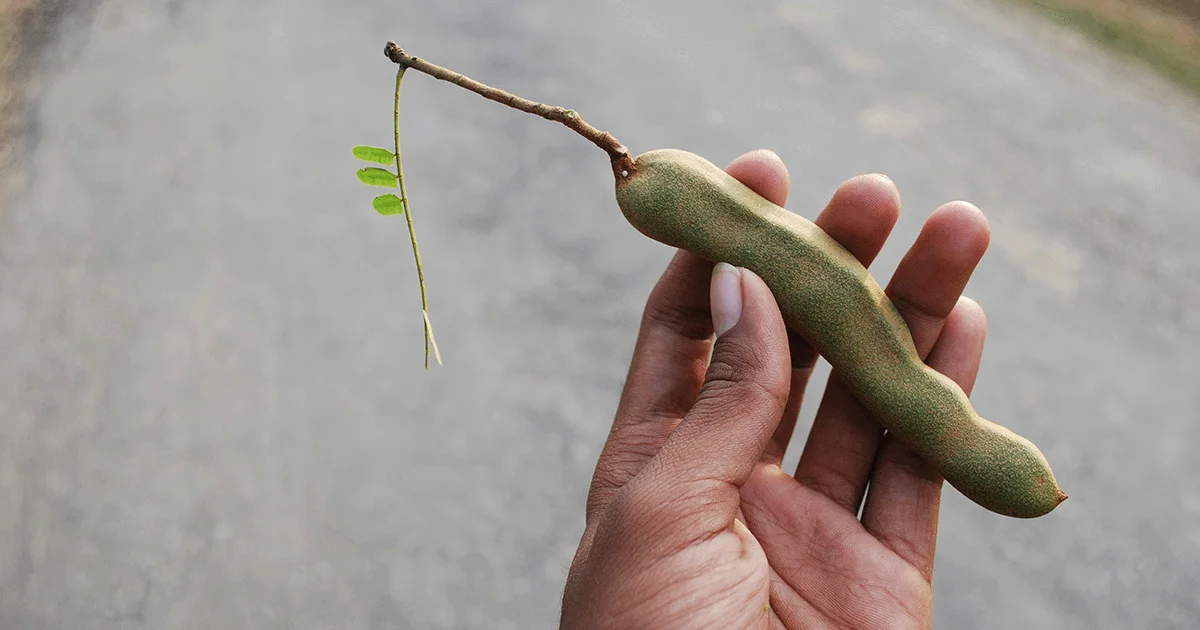Here's what we'll cover
Here's what we'll cover
Here's what we'll cover
For centuries, people have searched for ways to increase libido and sexual desire. A quick internet search brings up all types of substances and supplements that claim to heighten sexual interest and satisfaction.
If you’re looking for an aphrodisiac for men, here are some natural foods and medicinal plants that may do the trick.
What is an aphrodisiac?
Aphrodisiacs are foods or drugs purported to increase sexual desire, pleasure, and performance. Natural remedies to increase arousal or improve things like erectile dysfunction (ED) have been used throughout Europe, Africa, India, and China for thousands of years (Kotta, 2013).
Some familiar ones referenced in pop culture are oysters, strawberries, and chocolate (though maybe not all mixed together). Let’s take a look at some other herbs and food sources that may boost your sexual health.
12 natural aphrodisiacs for men
1. Pistachio nuts
This mild nut comes from the pistachio tree and has been used for thousands of years in traditional medicine and culinary dishes. Pistachios are loaded with all sorts of healthy fats and nutrients, including vitamin A, vitamin E, potassium, magnesium, and zinc (Mandalari, 2022).
Some research suggests pistachios may benefit sexual health by improving blood flow, blood pressure, cholesterol levels, and blood sugar control (Ghanavati, 2020). One small study found that eating 100 g of pistachios daily for three weeks improved erectile function in men with ED (Aldemir, 2011).
2. Oysters
Maybe it’s the act of eating them or because oysters are full of nutrients, but this shellfish has long been known for its alleged aphrodisiac effects.
Oysters are packed with protein, B vitamins, iron, and zinc. Some animal studies have linked the zinc in oysters to higher testosterone levels, which in theory might boost a person’s sex drive (Astuti, 2019).
Another recent animal study found that enzymes in oysters increased testosterone and improved sexual dysfunction in rats (Zhang, 2021). Though the research is promising, these effects have yet to be proven in humans.
3. Okra
The edible part of okra comes from the seed pods of the plant. Historically, this vegetable has been used as an aphrodisiac and in herbal medicines for the following uses (Elkhalifa, 2021):
To stimulate appetite
As an astringent or cleanser
For treating things like gonorrhea, dysentery, and urinary tract infections
Okra has lots of healthy nutrients including magnesium, iron, folate, zinc, and fiber. There’s no dispute that okra is good for you, but there’s not much evidence it’s an aphrodisiac.
4. Pomegranate
Throughout Mediterranean regions, pomegranates stand as a symbol of love and fertility. These plump, ruby-seeded fruits are loaded with antioxidants, fiber, vitamin C, and vitamin K. Pomegranates have a host of health benefits, possibly even in the realm of male fertility.
One small study found that men who took pomegranate fruit extract saw better sperm motility or movement, an important factor in fertility. Another animal study found consuming pomegranate juice daily increased testosterone levels and protected cells in the testicles from oxidative damage, which is harmful for fertility (Fedder, 2014; Al-Olayan, 2014).
5. Watermelon
Watermelon is a popular treat during the summer months because it’s thirst-quenching, delicious, and could even play a role in sexual health.
One of the nutrients in watermelon is an amino acid called citrulline. Citrulline is converted to another amino acid called L-arginine, which may boost erectile function. One study showed citrulline supplements gave men with mild ED harder erections and more sexual pleasure (Cormio, 2011).
6. Maca
Maca is a root vegetable primarily used as a herb or supplement. It can be added to food and mixed in drinks or smoothies. Maca root grows in the Andes and is sometimes referred to as Peruvian ginseng.
People have long considered maca root an aphrodisiac. Several studies suggest maca may improve sexual behaviors and functions in rats, however, there isn’t enough evidence to support these effects in humans (Shin, 2010).
7. Tribulus terrestris
This plant naturally grows in dry climates and is also found in male fertility supplements.
Research has found that Tribulus terrestris extract boosted erectile function and sexual performance in men with mild to moderate ED (Kamenov, 2017). Animal studies also suggest this supplement may increase testosterone levels (Singh, 2012).
8. Ginkgo biloba
The leaves of the Ginkgo biloba tree are used to create an extract that’s been used for centuries in traditional Chinese medicine. Ginkgo biloba has a variety of uses, including boosting sexual arousal and function.
It contains a compound called terpene lactone, which increases blood flow to the genitals and stimulates certain chemicals in the brain. These effects might contribute to the plant’s value as an aphrodisiac by increasing sex drive, pleasure, and alertness (Lim, 2017).
9. Ginseng
Ginseng, sometimes called the “king of all herbs,” is a popular supplement for its many purported health benefits. Research suggests ginseng may improve male reproductive health by increasing sperm count, producing better quality sperm, and boosting sex drive (Leung, 2013).
Despite the positive results of some studies, much of the research is limited or based on animal studies. More evidence is needed to truly understand the health effects of ginseng.
10. Ashwagandha
Ashwagandha is a herb used throughout the Middle East, India, Africa, and Asia. It has a wide range of benefits like reducing anxiety, stress, inflammation, and improving mood.
Many people claim ashwagandha also increases sexual performance, testosterone, and libido. Some research suggests ashwagandha may help treat ED and performance anxiety. However, results are mixed and other researchers say there isn’t enough evidence to consider ashwagandha an aphrodisiac (Dongre, 2015).
11. Yohimbe
Yohimbe comes from the bark of an evergreen tree species in Africa. Sometimes referred to as “herbal Viagra,” yohimbe is a favorite in traditional medicine for enhancing sexual performance and desire.
Yohimbe has also been used for centuries to alleviate ED. A recent study found that combining yohimbe with other treatments improved erections in men with ED (Wibowo, 2021).
12. Spanish fly
This substance is derived from an insect known as a blister beetle. The beetles produce a substance called cantharidin, which is touted to increase libido.
And while Spanish fly was used for thousands of years as a natural sex supplement, you should never ever try this at home. Cantharidin is toxic and can lead to poisoning, injury, and death (Kotta, 2013).
While many foods and herbs are taken for their potential aphrodisiac properties, it’s worth noting most aren’t supported by scientific evidence. Be sure to talk with your healthcare provider before starting any new supplements or herbal remedies.
DISCLAIMER
If you have any medical questions or concerns, please talk to your healthcare provider. The articles on Health Guide are underpinned by peer-reviewed research and information drawn from medical societies and governmental agencies. However, they are not a substitute for professional medical advice, diagnosis, or treatment.
References
Aldemir, M., Okulu, E., Neşelioğlu, S., et al. (2011). Pistachio diet improves erectile function parameters and serum lipid profiles in patients with erectile dysfunction. International Journal of Impotence Research , 23 (1), 32–38. doi:10.1038/ijir.2010.33. Retrieved from https://pubmed.ncbi.nlm.nih.gov/21228801/
Al-Olayan, E. M., El-Khadragy, M. F., Metwally, D. M., & Abdel Moneim, A. E. (2014). Protective effects of pomegranate (Punica granatum) juice on testes against carbon tetrachloride intoxication in rats. BMC Complementary and Alternative Medicine, 14,
doi:10.1186/1472-6882-14-164. Retrieved from https://www.ncbi.nlm.nih.gov/pmc/articles/PMC4041339/
Astuti, P., Airin, C. M., Sarmin, S., et al. (2019). Effect of shell as natural testosterone boosters in Sprague Dawley rats. Veterinary World , 12 (10), 1677–1681. doi:10.14202/vetworld.2019.1677-1681. Retrieved from https://www.ncbi.nlm.nih.gov/pmc/articles/PMC6868249/
Cormio, L., De Siati, M., Lorusso, F., et al. (2011). Oral L-citrulline supplementation improves erection hardness in men with mild erectile dysfunction. Urology , 77 (1), 119–122. doi:10.1016/j.urology.2010.08.028. Retrieved from https://pubmed.ncbi.nlm.nih.gov/21195829/
Dongre, S., Langade, D., & Bhattacharyya, S. (2015). Efficacy and safety of Ashwagandha (Withania somnifera) root extract in improving sexual function in women: a pilot study. BioMed Research International . doi:10.1155/2015/284154. Retrieved from https://www.ncbi.nlm.nih.gov/pmc/articles/PMC4609357/
Dording, C. M. & Sangermano, L. (2018). Female sexual dysfunction: natural and complementary treatments. Focus , 16 (1), 19–23. doi:10.1176/appi.focus.20170049. Retrieved from https://www.ncbi.nlm.nih.gov/pmc/articles/PMC6519565/#B38
Elkhalifa, A., Alshammari, E., Adnan, M., et al. (2021). Okra ( Abelmoschus Esculentus ) as a potential dietary medicine with nutraceutical importance for sustainable health applications. Molecules , 26 (3), 696. doi:10.3390/molecules26030696. Retrieved from https://www.ncbi.nlm.nih.gov/pmc/articles/PMC7865958/
Fedder, M. D., Jakobsen, H. B., Giversen, I., et al. (2014). An extract of pomegranate fruit and galangal rhizome increases the numbers of motile sperm: a prospective, randomised, controlled, double-blinded trial. PloS One , 9 (9), e108532. doi:10.1371/journal.pone.0108532. Retrieved from https://pubmed.ncbi.nlm.nih.gov/25275520/
Ghanavati, M., Rahmani, J., Clark, C., et al. (2020). Pistachios and cardiometabolic risk factors: A systematic review and meta-analysis of randomized controlled clinical trials. Complementary Therapies in Medicine, 52 . doi:10.1016/j.ctim.2020.102513. Retrieved from https://pubmed.ncbi.nlm.nih.gov/32951758/
Golomb, B. A. & Berg, B. K. (2021). Chocolate Consumption and Sex-Interest. Cureus , 13 (2), e13310. doi:10.7759/cureus.13310. Retrieved from https://www.ncbi.nlm.nih.gov/pmc/articles/PMC7885734/#REF11
Kamenov, Z., Fileva, S., Kalinov, K., & Jannini, E. A. (2017). Evaluation of the efficacy and safety of Tribulus terrestris in male sexual dysfunction-A prospective, randomized, double-blind, placebo-controlled clinical trial. Maturitas, 99, 20–26. doi:10.1016/j.maturitas.2017.01.011. Retrieved from https://pubmed.ncbi.nlm.nih.gov/28364864/
Kotta, S., Ansari, S. H., & Ali, J. (2013). Exploring scientifically proven herbal aphrodisiacs. Pharmacognosy Reviews , 7 (13), 1–10. doi: 10.4103/0973-7847.112832. Retrieved from https://www.ncbi.nlm.nih.gov/pmc/articles/PMC3731873/
Leung, K. W. & Wong, A. S. (2013). Ginseng and male reproductive function. Spermatogenesis , 3 (3), e26391. doi:10.4161/spmg.26391. Retrieved from https://www.ncbi.nlm.nih.gov/pmc/articles/PMC3861174/
Lim, P. (2017). Asian herbals and aphrodisiacs used for managing ED. Translational Andrology and Urology , 6 (2), 167–175. doi:10.21037/tau.2017.04.04. Retrieved from https://www.ncbi.nlm.nih.gov/pmc/articles/PMC5422695/
Mandalari, G., Barreca, D., Gervasi, T., et al. (2022). Pistachio nuts ( Pistacia vera L.): Production, nutrients, bioactives and novel health effects. Plants , 11 (1), 18. doi:10.3390/plants11010018. Retrieved from https://www.ncbi.nlm.nih.gov/pmc/articles/PMC8747606/
Salonia, A., Fabbri, F., Zanni, G., et al. (2006). Original research—women’s sexual health: Chocolate and women’s sexual health: an intriguing correlation. The Journal of Sexual Medicine , 3 (3), 476–482. doi:10.1111/j.1743-6109.2006.00236.x. Retrieved from https://www.jsm.jsexmed.org/article/S1743-6095(15)31344-8/fulltext
Shin, B. C., Lee, M. S., Yang, E. J., et al. (2010). Maca (L. meyenii) for improving sexual function: a systematic review. BMC Complementary and Alternative Medicine, 10,
doi:10.1186/1472-6882-10-44. Retrieved from https://www.ncbi.nlm.nih.gov/pmc/articles/PMC2928177/
Singh, S., Nair, V., & Gupta, Y. K. (2012). Evaluation of the aphrodisiac activity of Tribulus terrestris Linn. in sexually sluggish male albino rats. Journal of Pharmacology and Pharmacotherapeutics , 3 (1), 43–47. doi:10.4103/0976-500X.92512. Retrieved from https://www.ncbi.nlm.nih.gov/pmc/articles/PMC3284036/
Wibowo, D., Soebadi, D. M., & Soebadi, M. A. (2021). Yohimbine as a treatment for erectile dysfunction: A systematic review and meta-analysis. Turkish Journal of Urology , 47 (6), 482–488. doi:10.5152/tud.2021.21206. Retrieved from https://pubmed.ncbi.nlm.nih.gov/35118966/
Zhang, W., Wei, Y., Cao, X., et al. (2021). Enzymatic preparation of Crassostrea oyster peptides and their promoting effect on male hormone production. Journal of Ethnopharmacology, 264,
doi:10.1016/j.jep.2020.113382. Retrieved from https://pubmed.ncbi.nlm.nih.gov/32918991/










